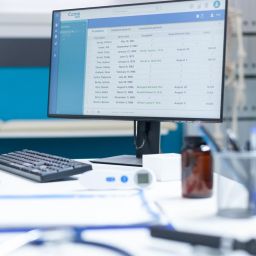
homecare solutions in Saudi Arabia: How Software Solutions and Mobile Apps are Revolutionizing Patient Care
The Shift Toward Homecare in Saudi Arabia
Saudi Arabia healthcare system stands at a pivotal point. With a growing population, increased life expectancy, and rising chronic disease prevalence, the traditional hospital-centric model is under pressure. As the Kingdom advances toward its ambitious Vision 2030 goals, homecare is emerging as a key pillar of healthcare transformation—empowered by digital technologies, especially homecare software solutions and mobile applications.
Vision 2030 positions digital health as a national priority. The Ministry of Health (MOH) and other stakeholders are actively investing in homecare innovations to extend care beyond hospital walls, reduce operational burdens, and enhance patient outcomes. This article explores how tailored homecare software and mobile applications are reshaping healthcare delivery in the Saudi context—offering culturally sensitive, technologically advanced, and strategically aligned solutions.
Saudi Arabia’s Healthcare Landscape: Drivers Behind the Homecare Boom
1. Current Challenges in Healthcare Delivery
-
Urban-Rural Divide: A significant portion of specialized care is concentrated in major cities like Riyadh and Jeddah, leaving remote and rural populations underserved.
-
Chronic Disease Burden: According to MOH reports, nearly 1 in 5 Saudis suffer from diabetes, and chronic diseases account for a substantial portion of healthcare expenditures.
-
Healthcare Workforce Shortages: With an increasing demand for services and a limited number of medical professionals, the system is under strain.
2. Vision 2030 and Healthcare Technology
Saudi Vision 2030’s Health Sector Transformation Program aims to:
-
Improve access to healthcare across the Kingdom
-
Promote preventive care
-
Expand digital health infrastructure
-
Encourage public-private partnerships in health technology
One of the key deliverables under this vision is the digitalization of health services, including homecare, remote monitoring, and AI-powered decision support tools.
3. The Growing Importance of Homecare
Homecare addresses critical challenges:
-
Reduces unnecessary hospital admissions
-
Supports aging populations in familiar environments
-
Enhances chronic disease management and rehabilitation
The Saudi government has recognized these advantages, with MOH initiatives like Seha Virtual Hospital, 937 Call Center, and Wasfaty paving the way for scalable digital homecare services.
Homecare Software Solutions: A Technological Backbone for At-Home Care
1. What Constitutes Comprehensive Homecare Software?
A robust homecare software solution in Saudi Arabia typically includes:
-
Patient Case Management: Centralized medical history, assessments, care plans
-
Remote Monitoring: Integration with IoT devices for vitals tracking (e.g., blood glucose, ECG)
-
Scheduling & Dispatching: Real-time visit planning for nurses and caregivers
-
Documentation & Reporting: Arabic-enabled EMR features tailored for in-home documentation
-
Billing & E-Invoicing: Integration with NHIC and private insurers, supporting e-invoicing regulations (ZATCA compliance)
2. Addressing Saudi Healthcare System Challenges
Homecare software directly tackles systemic issues by:
-
Decentralizing care delivery: Bringing services to patients’ homes
-
Supporting clinical decision-making: Through AI alerts and automated protocols
-
Reducing hospital congestion: Via proactive care plans and virtual visits
3. Integration with Existing Infrastructure
Top-tier homecare software solutions in Saudi Arabia offer:
-
Interoperability with HESN and Seha platforms
-
HL7/FHIR standards support for EMR/HIS integration
-
Real-time data exchange with MOH and insurance systems
4. Saudi-Specific Features and Adaptations
-
Full Arabic language support in both UI and documentation modules
-
Islamic prayer time scheduling buffers in visit calendars
-
Geolocation services aligned with urban zoning regulations for Riyadh, Jeddah, etc.
-
Tamam-compliant consent forms for home-based procedures
Mobile Applications: Bridging the Gap Between Doctors and Patients
1. Enabling Remote Consultations
Mobile applications play a critical role in connecting doctors and patients in real-time, especially in rural or conservative settings. Key features include:
-
Video and audio teleconsultation
-
Chat-based follow-ups
-
E-prescriptions integrated with Wasfaty
These features help minimize hospital visits while maintaining care continuity—crucial for managing chronic conditions and post-operative recovery.
2. Cultural Considerations in App Design
App developers must respect:
-
Gender preferences: Options to select male or female physicians in accordance with conservative norms
-
Family involvement: Features enabling family members to access and manage appointments for elderly relatives
-
Prayer and fasting awareness: Custom health advice during Ramadan and reminders respecting prayer times
3. Privacy and Religious Norms
-
Use of secure logins and biometric authentication (e.g., Tawakkalna ID integration)
-
Ensuring private consultations with end-to-end encryption
-
Avoiding exposure of sensitive images or data without explicit, documented consent
4. Enhancing Continuity of Care
Mobile apps allow:
-
Shared care plans between homecare providers and physicians
-
Medication adherence tracking
-
Automated appointment reminders and lab result notifications
These features enhance trust and reliability, especially for patients with long-term treatment plans.
Stakeholder Benefits of Homecare Software Solutions
1. Healthcare Providers
-
Efficient workforce management
-
Automated compliance reporting to Saudi Central Board for Accreditation of Healthcare Institutions (CBAHI)
-
Improved data collection for population health analytics
2. Patients and Families
-
Comfort and dignity of receiving care at home
-
Reduced travel—particularly beneficial for elderly patients in smaller towns
-
Culturally familiar environments that align with Saudi familial values
3. Saudi Healthcare System
-
Lower healthcare costs through early interventions
-
Decreased burden on emergency departments
-
Scalable models for public-private partnerships in healthcare delivery
Implementation Considerations in the Saudi Context
1. Regulatory Compliance
-
Adherence to Saudi Data and Artificial Intelligence Authority (SDAIA) and National Cybersecurity Authority (NCA) guidelines
-
MOH licensing and periodic audits
2. Data Privacy and Security
-
Hosting data on Saudi-based servers
-
AES 256-bit encryption and secure APIs
-
Role-based access aligned with Health Data Governance Framework
3. Language and Accessibility
-
Full Arabic interface support
-
Voice recognition and dictation tools in Arabic for caregivers
-
Simplified navigation for low-literacy populations
4. Cultural Sensitivity
-
Built-in gender segregation features
-
Localization aligned with Hijri calendar
-
Customizable modules for Ramadan health programs or Hajj season services
The Future of Homecare in Saudi Arabia: Trends and Innovations
1. AI and Predictive Analytics
-
Use of AI to predict hospital readmission risks
-
Machine learning models that flag high-risk patients based on real-time vitals
2. Telehealth Expansion Post-COVID
-
Continued investment in platforms like Seha Virtual Hospital
-
Growth of public-private app ecosystems, such as Nala, Altibbi, and Cura
3. Integration with National Digital Health Initiatives
-
Alignment with NPHIES, the unified health data exchange platform
-
Cross-sector collaboration under the Health Sector Transformation Program
Conclusion: Strategic Adoption for Sustainable Impact
Saudi Arabia’s transition toward digitally enabled homecare is no longer a future goal—it’s a present necessity. By investing in culturally-aware, technically sound, and Vision 2030-aligned homecare software and mobile applications, healthcare leaders can improve access, reduce systemic pressure, and deliver more personalized care.
Actionable Takeaways for Decision-Makers:
-
Select homecare software that fully integrates with national platforms (Seha, Wasfaty, NPHIES)
-
Ensure applications offer Arabic UI/UX and comply with MOH/NCA data security standards
-
Prioritize solutions designed with cultural and religious considerations in mind
-
Plan for AI and predictive tools to scale outcomes over time
As the Kingdom moves closer to realizing its Vision 2030 healthcare objectives, homecare technology stands out not just as a tool—but as a transformation enabler. The time to act is now.















